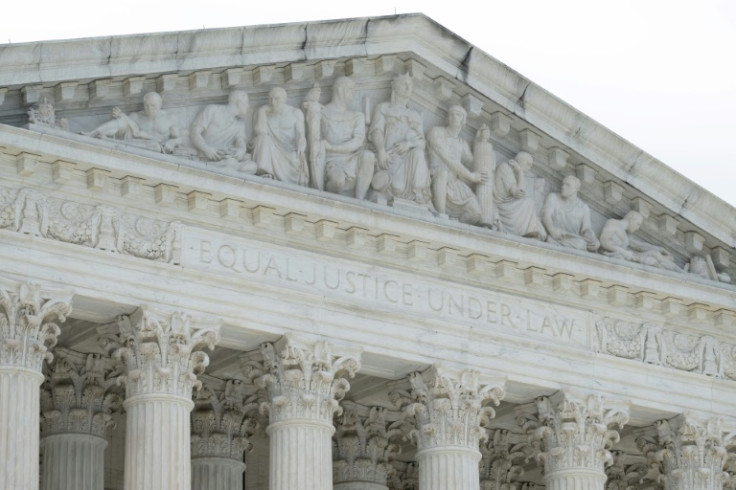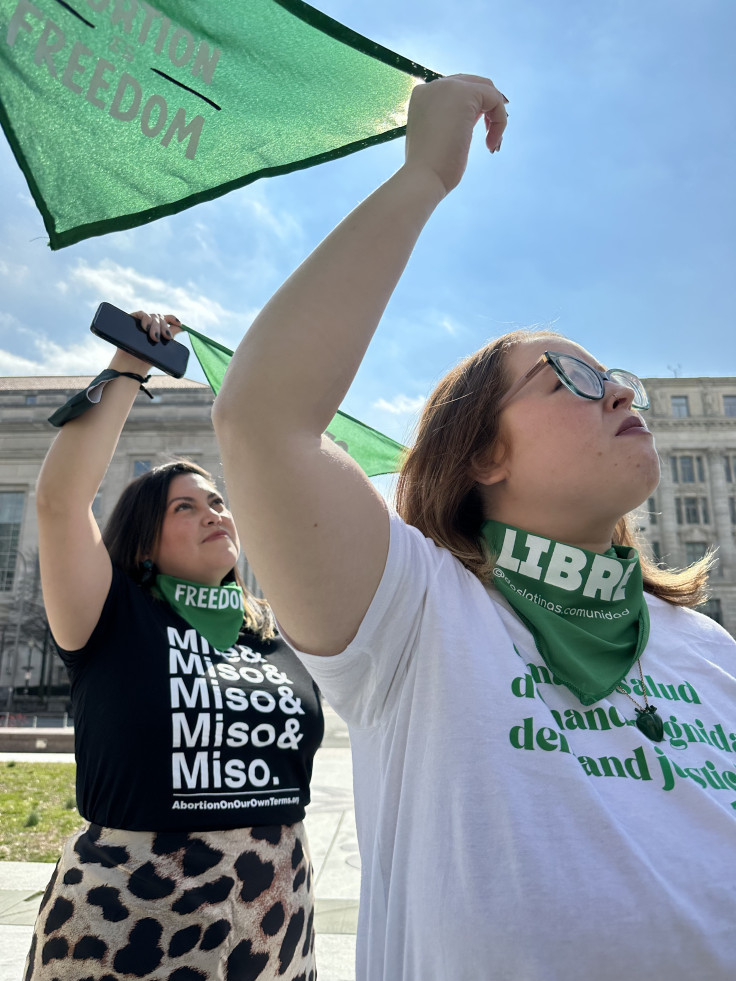
The Supreme Court appeared skeptical last week of arguments made by anti-abortion doctors seeking to roll back the availability of mifepristone, a drug that now constitutes nearly two-thirds of all abortions performed in the country.
This case marks the most significant abortion-related challenge before the justices since the Dobbs decision in June 2022, which overturned Roe v. Wade, thus eliminating the national right to abortion and disproportionately affecting Latinas in the U.S.
Now, the focus is on mifepristone, which is taken alongside another drug to terminate an early pregnancy. The Food and Drug Administration (FDA) approved it in 2000 and made changes to increase accessibility in 2016 and 2021.
A coalition of anti-abortion rights doctors and medical associations, known as the Alliance for Hippocratic Medicine, challenged these changes, arguing against the safety of mifepristone and the FDA's actions over the past decade.
These expansions allowed the use of mifepristone after 10 weeks of pregnancy, instead of seven weeks, and permitted its delivery through the mail without an in-person doctor's visit, a possibility which gained major importance after Dobbs.
"We are hopeful based on what we heard during the hearings, during the oral arguments on Tuesday, that the court will uphold access to mifepristone," Lupe Rodríguez, Executive Director, National Latina Institute for Reproductive Justice, told The Latin Times.
"The folks who brought the case have cited dangers, but none of the plaintiffs, who are anti-abortion doctors, actually prescribe mifepristone or provide such care. And additionally, many studies have shown that mifepristone is safer than Tylenol. There's absolutely no merit to this case. The country sees that, and we're hopeful that the Supreme Court will do the right thing for our communities."
Overall, Rodríguez believes reproductive rights and abortion debate will have a significant role in this election cycle.
"I think we've already seen it in the last few elections since the overturning of Roe versus Wade. We believe that the majority of this country will go out to vote to support their access to this care and not only on ballot initiatives or specific policy initiatives that come before them, but they will also support candidates that are supporting their right to have access to this care. I firmly believe that that's true and I also firmly believe that that's true for the Latino community in the US," Rodríguez said.
The organization supports abortion access and other important issues related to reproductive justice, especially for Latinas in the U.S., a population who has been disproportionately affected by abortion bans.

"Unfortunately, since the Dobbs decision, the landscape for Latinas in terms of reproductive healthcare access and abortion care specifically is pretty dire. We know, by the numbers, that Latinas are the most affected by abortion bans because 6.7 million of us live in the 26 states that have already banned abortion or are likely to further restrict abortion," Rodríguez said.
The situation is particularly challenging within immigrant communities. "In Texas, there are internal immigration checkpoints at major highways that have made people afraid to travel even within their own states and certainly to leave their state to get the care they need," she added.
How could this case impact on Latinas?
This case was brought to the Court by a group of anti-abortion doctors who are claiming that mifepristone is unsafe, which we know is completely untrue. The FDA conducted rigorous examinations of the medication before marking its approval over 20 years ago. And since then the medication has been used by millions and millions of women in this country to safely and effectively terminate pregnancies. So the legal challenges that were heard by the court we feel should not have ever made it to the Supreme Court. They were from the very beginning based on frankly lies from these anti-abortion doctors, and so we are hopeful based on what we heard during the hearings that the court will uphold access to mifepristone.
But what's at stake if they do not uphold access to mifepristone is that millions of women in this country will lose access to a very critical medication for abortion care. Over 58% of abortions in the U.S. are done using mifepristone. For Latina specifically, since we already are the most impacted by the bans that have been enacted, and we know that Latinas are a higher proportion of the people who use medication to terminate their pregnancies when they need to, that this will absolutely have a disproportionate impact on the community.

What could be the potential outcomes if the Supreme Court were to rule in favor of the demands made by the coalition of anti-abortion doctors?
The Court has until June 30th to make their ruling. The justices could either rule to entirely invalidate the FDA's ruling that mifepristone is safe, which again happened over 20 years ago, or they could also roll back access to medication abortion, which was adjusted by the FDA some years ago more recently to say that it could be used up to 10 weeks in pregnancy and that it could be provided in dispense through telemedicine, which is now how many people are able to get mifepristone which has vastly increased access and has more greatly supported many people and getting the care they need.
We're concerned that even if the court decides to retract some of those expansions in access, it could still significantly impact people, especially given the Dobbs decision. Even in states where abortion remains legal, the availability of medication through telemedicine has reduced waiting periods and improved access to care for ending pregnancies. This has facilitated access and made obtaining care much easier.
What is the situation in states where abortion is banned, and many women receive mifepristone by mail?
Access to abortion care through medication has absolutely increase since the Dobbs decision, but for over 20 years millions of women have used mifepristone along with other medications to terminate their pregnancies, so it's been widely used by people before that. My organization does not engage directly with providing access to medication for people in states where abortion is banned, but we do know that people in states where abortion is banned are trying to find ways to get this care and there are organizations that are supporting them, particularly International organizations, like Aid Access.
So cutting off access to people to this care in places where they don't have any other options is absolutely a critical concern and very dangerous frankly, because we know that even if people cannot have access to this medication if they cannot travel to get the care they need, they will still need abortions and they will still try to find ways to end their pregnancies.
How do you foresee the discussions around medication abortion evolving in the coming months?
There is a lot more knowledge in the community about medication abortions. We know that whenever we are confronted by these anti-abortion politicians and anti-abortion judges who want to take away our rights, people mobilize to show their support for this care. The majority of this country, over 70% of people, support access to abortion. And even in the Latino community over 65% of Latino say that they support access to abortion and would take action to defend their right to this care. So we know that for the months to come this will only strengthen the efforts in this country to win back our rights and to defend our rights.
© 2024 Latin Times. All rights reserved. Do not reproduce without permission.







